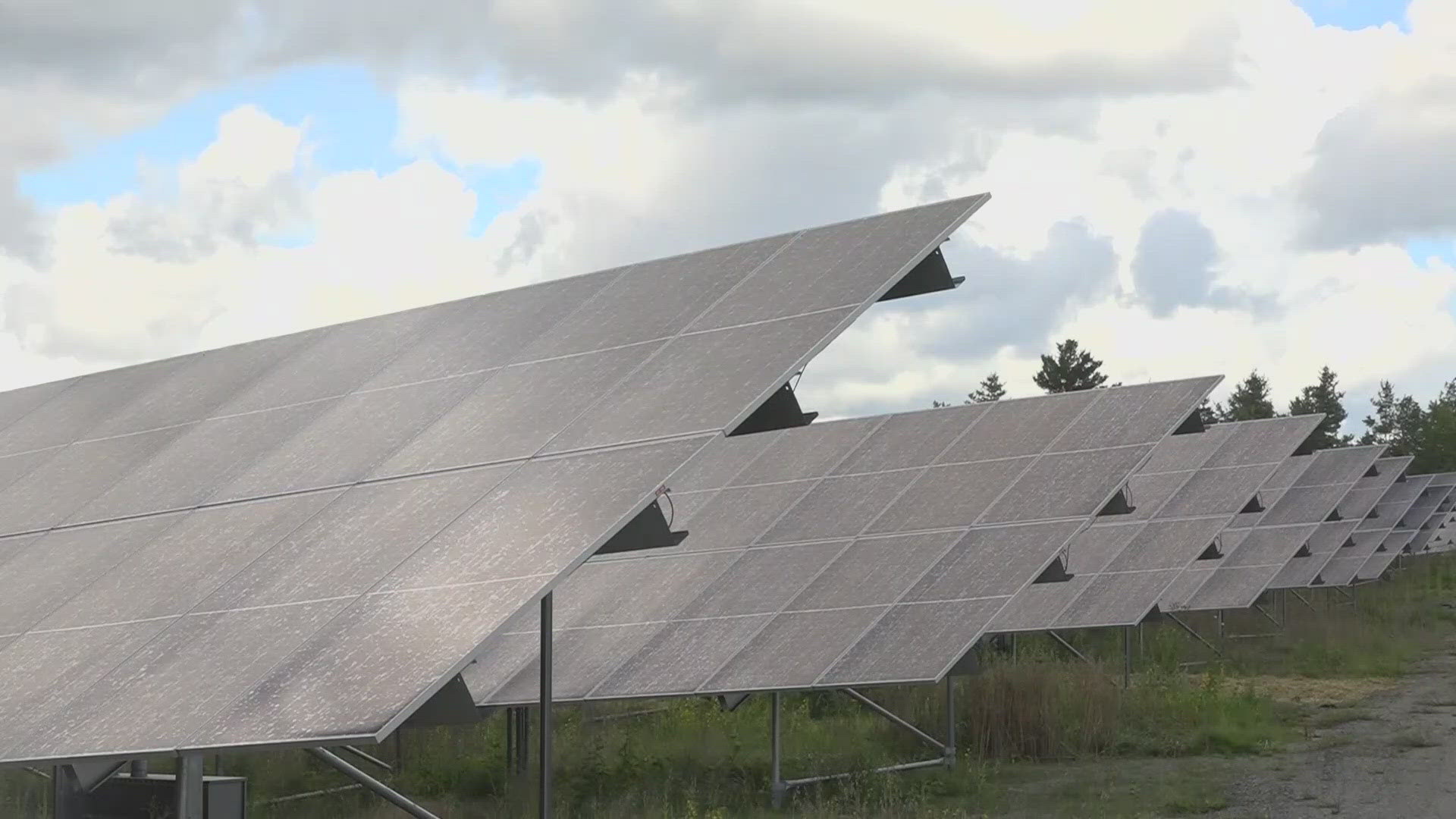LEEDS, Maine — There's a lot of work that goes into meeting Maine's climate change goals. Building sources of clean energy in the form of solar, wind farms, marine plants, and more, requires construction workers of all kinds.
Kilton Webb works in construction as a journeyman electrician. "Job security is really important with making big life decisions," Webb said.
In his line of work, Webb has typically been used to making sacrifices to keep that stability. Traveling far away is a caveat he accepted, until recently.
"Thankfully, we've been so busy that a lot of us have been able to stay here employed all through the year." Building a solar site in Leeds is Webb's current assignment. For the last few years, those are the jobs that have kept his roster full.
"All the way from breaking ground to commissioning and bringing it onto the power grid," is one of many clean energy roles Webb and thousands of other Maine workers have been newly tasked with since the Inflation Reduction Act was passed.
"This is tremendously exciting," said Francis Eanes, who represents many of those workers as the Executive Director of the Maine Labor Climate Council. Eanes said the tax credits offered in the act have created a big incentive for companies to build clean energy projects.
"This is one of the best opportunities to really grow our local economies." Eanes has seen more than 100 projects kick-started, which he believes are mainly employing local workers and giving them ideal opportunities.
"This is a chance for their families to see the benefit of a good paycheck again, to have them closer to home where they can see their kids growing up, go to the baseball games..." said Eanes.
According to Webb, he's already getting the ability to make those big life decisions again.
"Through this solar work we've seen here in Maine, this big boom, it's really given me the ability to actually afford to buy a home here near my family and friends," he said.

